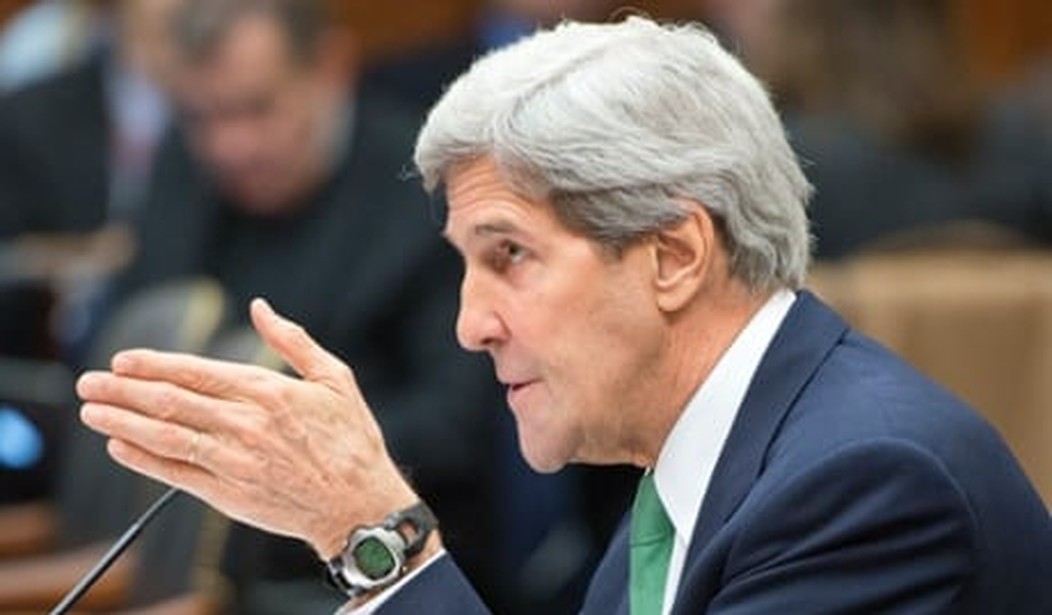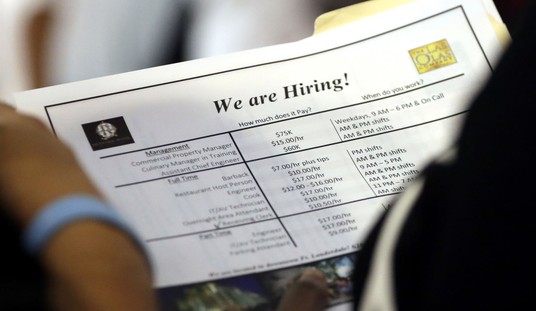WASHINGTON — Telling Congress that the Obama administration took trust out of the equation by coining the new term “test but verify,” Secretary of State John Kerry displayed a testy attitude with House Democrats today in trying to beat back any legislative effort to pass new sanctions against Iran.
Kerry also admitted that Tehran was essentially right when it said, despite administration claims to the contrary after the Geneva deal was inked, that it didn’t lose the right to enrich uranium.
“We’ve heard the administration say that Iran has no right to enrich. But the Iranians this week say they do. And the joint action plan indicates that the U.S. would accept an Iranian enrichment program,” House Foreign Affairs Committee chairman Ed Royce (R-Calif.) said at the hearing.
“Iran, from our standpoint, does not need this technology to generate electricity. Clearly, we’re prepared to allow them to import nuclear fuel, but if they have this technology, it is exactly what they do need to make a nuclear weapon,” Royce continued. “So, am I reading this right? Is the administration’s position that while it may not recognize Iran’s right to enrich, Iran will in practice retain an enrichment program as part of the final agreement? That is the question.”
“It depends, Mr. Chairman, on the final agreement. It is not locked in, no,” Kerry replied, adding that he had “one, two, three, four ‘mutually agreed’ or ‘agreed upons'” in the Geneva pact.
“Now, those are going to have to be agreed upon, and if they can’t be, no, they won’t have one. If it’s so limited and so verifiable and so transparent and so accountable, and you have all of the attributes of cradle-to-grave documentation,” then Iran would beable to enrich uranium, he said.
“…I will say as I said to Foreign Minister Zarif in our negotiations, there is no right to enrich in the NPT, but neither is it denied.”
Kerry did not submit a formal opening statement, and extemporaneously droned on for so long that Royce had to interject and ask him to wrap it up.
He vigorously defended the agreement’s sanctions relief — “we have red-teamed and vetted and cross-examined and run through all the possible numbers through the intel community” to come at the estimate of $7 billion that Iran could reap from the deal — and brushed off Israel’s concern about the deal as Washington knowing what’s in Jerusalem’s best interest.
What really got Kerry defensive and belligerent was not committee Republicans but the panel’s Democrats — most of whom voiced deep-seated reservations to outright opposition to the deal.
His tone, body language and continually evolving laundry list of reasons why Congress shouldn’t pass any new sanctions legislation made clear just how much the administration fears potential passage of a bill with a veto-proof majority.
And that goes for any sanctions — even ones that don’t go into effect for six months, as Senate Foreign Relations Committee Chairman Robert Menendez (D-N.J.) has suggested, or those triggered by Iran reneging on the deal.
Ranking Member Eliot Engel (D-N.Y.) told Kerry that “at a minimum” the deal “should have required Iran to suspend uranium enrichment as demanded by six separate U.N. Security Council resolutions.”
“I don’t think it’s asking too much of Iran to say that at least while we’re talking, you stop enriching,” he said. “…If Iran retains any enrichment capacity, how can we be sure that they will not forever remain on the brink of a breakout capacity?”
Engel also noted that our closest regional allies — who have the most to lose because of their proximity to Iran — were not only caught off guard by the deal but have expressed serious reservations.
“Prime Minister Netanyahu of Israel obviously had a difference tactically. The prime minister thought we should ratchet up the sanctions and keep the pressure on and somehow they would collapse,” Kerry said. “We didn’t read it the same way. We also felt that if I just tried to go into the negotiation for the final status comprehensive agreement, you would be allowing them to continue to grow their program while you were negotiating. And that’s more like the North Korean model. You know, you sort of get into this long, prolonged negotiation, but they’re progressing while you’re doing it.”
Engel took issue with the administration broadly opposing any new sanctions by claiming that lawmakers “would cause irreversible damage to our diplomatic process with Iran.”
“If that’s true, then, how can the United States send a message to Iran that there will be dire consequences if the interim deal does not come to fruition?” he said.
“I can assure you they’ve listened to us in every conversation that we’ve had, and in every conversation that our friends have had with them,” Kerry said. “They know we’re serious. They know the president is serious. They know we’re serious about diplomacy, because we prefer to resolve this through diplomacy and to reach a reasonable accord.”
“You know, when Nixon opened China and Kissinger went over and sat with Mao Zedong it wasn’t based on trust, they set up a process and they began to, you know, build a different relationship. Same thing with Gorbachev and Reagan and the Soviet Union. It wasn’t based on trust, it was based on a process that was put in place. So we’re approaching this I think realistically …they know that if this fails, sanctions will be increased. We’ve said it a hundred times. And you all have said it a hundred times. And they know you’re yearning to go do it.”
When Engel suggested that tough sanctions could “strengthen the hand” of the administration in negotiations, Kerry snapped, “Well, I appreciate you thinking that. I’m respectfully suggesting to you that we think our hand is very, very strong and nothing is undone in the sanctions regime.”
Kerry practically begged Congress not to pass sanctions. “You don’t need do it,” he said. “It is actually gratuitous in the context of this situation. Because you can do it in a week. If you need to. When we say this ain’t working, we need your help, and believe me, we’ll be prepared to do that. And you’ll be partners in this as we go along, because we’ll be sharing, you know, a sense of where we are and what’s going on.”
But Rep. Brad Sherman (D-Calif.) countered that the claim sanctions could be turned around in a week is way off.
Sherman noted that even with years of difficulty in getting the administration to support sanctions, “now you’re here saying don’t do anything now because we’ll be with you in urging sanctions if this deal doesn’t go forward.”
The congressman said he was “impressed a little bit less” after reading the Geneva deal, particularly when coupled with Kerry’s claim that it “halts and rolls back the program.”
“The fact is, they’ve got 9,000 centrifuges turning now and they’ll turn throughout — they’ll spin throughout the term of this agreement. So the centrifuges are literally rolling forward. You’ve told us that they can’t increase their stockpile of enriched uranium. Yes, they can. They just have to convert it to uranium oxide,” Sherman said, highlighting how the Wisconsin Project on Nuclear Arms Control calculated that Iran will, over the course of the agreement, “create enough enriched uranium for four nuclear bombs.”
“Now, the one issue before Congress is whether we should adopt sanctions that go into effect in this summer, or instead that it’s safe to wait. As you point out, we can pass sanctions in a week if you’re lobbying for them. But if you’re, as every administration has, trying to prevent them, you’re asking us to be asleep and do nothing while 9,000 centrifuges turn and a new uranium stockpile is created,” Sherman added, noting that the Geneva agreement’s timeline puts the deadline in July — when Congress is preparing to leave for the August recess and controversial bills are competing for attention.
Kerry accused Sherman of “really setting up a straw man.”
“And it’s really not a hard one to knock down because there’s just no reality to the scenario you’re drawing,” he said. “…I don’t know any administration that doesn’t like to conduct its foreign policy on its terms.”
New Jersey Democrat Albio Sires said one of his key concerns is who will determine if negotiations with Iran are “going well.”
“Congressman, we will, obviously, the president of the United States, my team, will make the initial judgment. But we’re accountable to you and to the American people through you. So we will obviously have to confer. We’ll come up here. I’m sure you’ll want to hear from us somewhere in the middle of this or somewhere in the process. And we will, needless to say, brief you in the appropriate places and in the appropriate manner,” Kerry said.
He added under questioning that Washington and Tehran could mutually agree to extend the six-month negotiation period, as well.
“That would send a terrible message if we keep extending these negotiations,” Sires said.
“I said, my expectation is that it will not happen,” Kerry snapped. “It could, but I don’t expect it. And my hope is that we get it done sooner rather than later.”
“You know, I keep reading about the resolve of the Iranians to get this nuclear program done. And quite frankly, I just don’t know if this diplomatic effort on their behalf is really serious,” Sires continued. “Do you sense their sincerity in this?”
“It’s not my job to measure sincerity or — it’s my job to lay down a process by which we can measure it,” Kerry replied. “And thus far, they have indicated they’re ready do things that make a difference. They haven’t done them yet.”
Rep. Ted Deutch (D-Fla.) asked why the administration can’t just work with Congress to figure out a timetable by which Iran would face repercussions.
“At some point why wouldn’t it be in it our interests and the interests of our allies to make clear what will happen if the Iranians continue to push and extend and extend and there is no deal?” Deutch asked. “Why can’t we work together in the interest of a negotiating position to help with diplomacy, to strengthen diplomacy in order to do that?”
“We’ve made it clear to them what the implications are of not being successful. They know what the stakes are. And we have told them there will not be new sanctions of any kind imposed while we are negotiating. So if Congress votes for new sanctions, Congress is going off on its own and it — it raises a question,” Kerry said.
“Most importantly, I’m not as worried about, you know how they interpret it, as I am worried about how our allies, our friends, our partners interpret it. They’re part of this. And if the United States sort of just lumbers off on its own and does its own thing when we are working with those partners, they have a right to say, you know, we’re a partnership.”
Kerry told another Dem, David Cicilline of Rhode Island, that the administration doesn’t want a sanctions bill “because our partners don’t expect us to pass new sanctions while we’re negotiating, and because our partners, if we pass them now, you know, could get squirrelly on the whole idea of the sanctions. I mean, they’ll figure we’re kind of doing our own thing and that we’re not part of the team.”
However, it was one of those key allies, France, that originally stood against the deal with Iran for not being strident enough or protecting Israel’s interests.
Kerry told Cicilline that the administration opposition applies to anything bearing the name sanctions, even if the bill is enacted but the sanctions don’t go into effect.
“Even if the sanctions are not imposed. It implies a lack of faith in the process and an unwillingness to play by the rules that our partners are playing by,” Kerry said.
“We should tee it up and we should tee it up with a date-certain,” Deutch said of a sanctions deadline by which Iran would have to comply with the interim deal.
“But ‘teeing up’ doesn’t mean passing it here now,” Kerry said. “You can’t have a date certain until you know how your negotiations are working. You don’t want to make a presumption.”
Rep. Dana Rohrabacher (R-Calif.) branded the administration’s policy “grovel but verify.”
Rep. Juan Vargas (D-Calif.) noted that he worked on Kerry’s presidential campaign, adding “one of my biggest disappointments politically was that you didn’t become president.”
“However, when it comes to this deal, I’m completely against it. I do think it’s naive. And I don’t think it makes us safer, unfortunately, and I don’t think it makes our allies safer, especially Israel,” Vargas added. “…You said: ‘Has Iran changed its nuclear calculus? We don’t know. We should be skeptical.’ I’m not skeptical. I’m not skeptical at all. I don’t think it’s changed its calculus. I think it continues to want a nuclear weapons program.”
“Well, first of all, Congressman, I’m really pleased that you think I would have made a good president. And I appreciate your support in that effort,” Kerry said. “And I hate to disappoint you that I’ve come up with something in conjunction with the administration and our efforts that you think is naive.”
Rep. Ted Poe (R-Texas) asked Kerry if he believes it’s still the goal of Supreme Leader Ayatollah Khamenei to destroy Israel and the United States.
“I think their rhetoric is — is dangerous and threatening, and, you know, incredibly counter-productive and damaging to any potential, you know, rational relationship, but…,” Kerry replied.









Join the conversation as a VIP Member